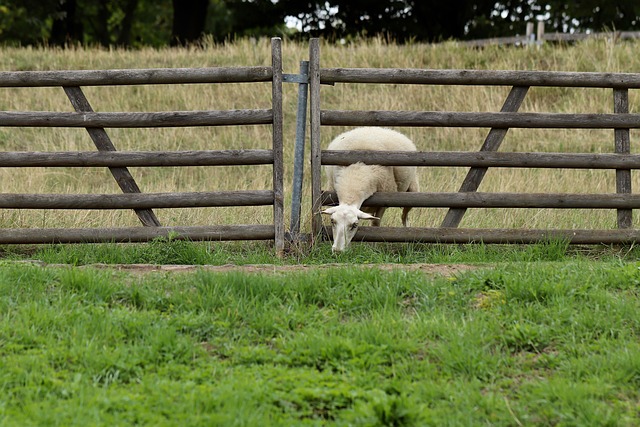In New Bedford, Massachusetts, the pursuit of eco-friendly solutions for fencing has gained traction, driven by both environmental consciousness and aesthetic preferences. This article delves into the diverse range of sustainable fencing materials available to residents, exploring their numerous benefits. From reduced carbon footprints to enhanced local ecosystems, these materials offer more than just visual appeal. We guide readers through the options, highlighting their advantages, local accessibility, and installation tips, while also emphasizing the long-term financial savings and environmental benefits that make eco-friendly fencing a smart choice for New Bedford communities.
- Exploring Eco-Friendly Fencing Options in New Bedford
- Benefits of Sustainable Fencing Materials
- Local Availability and Installation Tips
- Long-Term Savings and Environmental Impact
Exploring Eco-Friendly Fencing Options in New Bedford
In New Bedford, MA, exploring eco-friendly fencing options is both an environmentally responsible choice and a growing trend among residents committed to sustainability. Traditional fencing materials often involve harmful production processes and can contribute to environmental degradation over time. However, today’s market offers a diverse range of sustainable alternatives that not only reduce ecological impact but also enhance the aesthetic appeal of outdoor spaces.
Local suppliers and manufacturers are now providing innovative solutions such as recycled plastic fences, natural wood from sustainably managed forests, and plant-based composites. These materials offer significant advantages, including durability, low maintenance, and a reduced carbon footprint. Furthermore, they seamlessly integrate with the city’s green initiatives, promoting a harmonious blend of urban living and ecological consciousness.
Benefits of Sustainable Fencing Materials
In New Bedford, MA, opting for eco-friendly fencing materials offers a multitude of benefits. These sustainable options, such as recycled plastic, bamboo, or organic wood, significantly reduce environmental impact compared to traditional materials like vinyl or treated wood. By choosing these products, residents contribute to preserving local ecosystems and water sources, as they are often made from recycled or rapidly renewable resources, minimizing the need for extensive resource extraction and chemical treatments.
Moreover, sustainable fencing not only benefits the environment but also enhances the overall aesthetic appeal of properties. Natural materials like bamboo and organic wood add a charming, rustic touch to any landscape, while still providing robust protection. Additionally, these materials are typically low-maintenance, durable, and can last for many years with proper care, making them an economical choice in the long run.
Local Availability and Installation Tips
In New Bedford, MA, eco-friendly fencing materials are increasingly accessible, offering a sustainable alternative to traditional options. Local hardware stores and landscaping suppliers stock a variety of these products, including recycled plastic, bamboo, and treated wood certified by the Forest Stewardship Council (FSC). These locally available options not only reduce transportation emissions but also support regional businesses.
When installing eco-friendly fencing, consider enlisting professional services to ensure proper placement and longevity. Local contractors specializing in sustainable landscaping can provide expert advice on suitable materials for your property’s conditions, such as soil type and climate. Additionally, they can offer guidance on design elements, like post spacing and rail heights, to create a functional and aesthetically pleasing fence that seamlessly blends with the natural surroundings.
Long-Term Savings and Environmental Impact
Eco-friendly fencing materials offer more than just an aesthetic appeal; they also provide long-term savings and significantly reduce environmental impact. Traditional wooden fences, while aesthetically pleasing, require frequent replacement due to rot, pest damage, and weather exposure, leading to increased maintenance costs over time. In contrast, sustainable fencing options like recycled plastic, composite materials, or natural fibers are durably designed to withstand various weather conditions without degradation.
Furthermore, these eco-conscious choices minimize environmental harm by utilizing recycled or renewable resources. For instance, recycled plastic fences divert waste from landfills and reduce the need for new plastic production, which is energy-intensive and generates harmful emissions. By choosing sustainable fencing materials, homeowners in New Bedford, MA, can contribute to a greener environment while enjoying long-lasting, low-maintenance barriers that enhance their properties’ value without compromising aesthetics or ecological balance.
